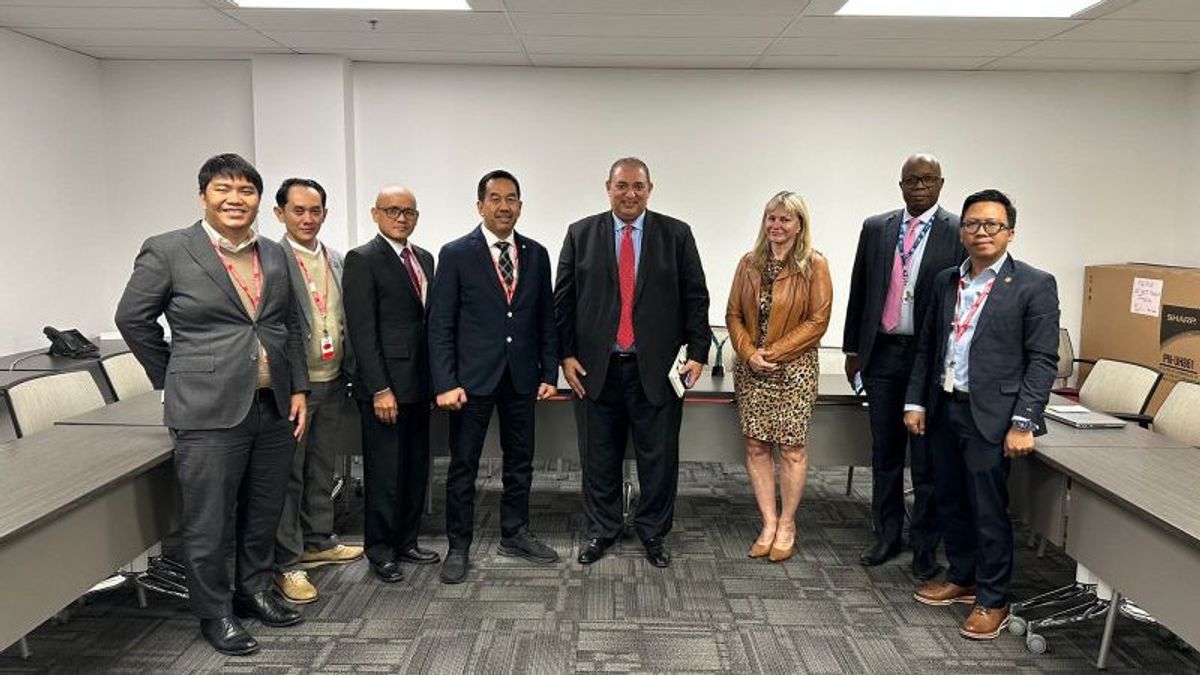PT Angkasa Pura II (Persero) and the International Civil Aviation Organization (ICAO) held a meeting at the ICAO headquarters in Montreal, Canada, on November 3, 2022 local time to discuss recovery, efficiency, and environmental issues in the aviation sector.
The meeting was attended by AP II President Director Muhammad Awaluddin, and ICAO namely Director of Air Transport Bureau Mohamed Rahma, Deputy Director of Air Transport Bureau Jane Upe and Air Transport Bureau Chief Economic Policy Section Peter Alawani.
Muhammad Awaluddin said the AP II and ICAO meetings were in line with the spirit of the Aviation Dialogue G20 in Bali which was attended by the Minister of Transportation of the Republic of Indonesia and the President of ICAO.
"We want the AP II program to always be relevant to the global aviation industry. Moreover, Indonesia is projected to become the 4th largest air transportation market in the world in 2036," he said as quoted by Antara, Monday.
Awaluddin said the AP II and ICAO meeting discussed three important aspects, namely the recovery of the aviation industry (avidiation recovery), superior airport operations and strategic programs in reaching the future (strategic airport program in the future).
He conveyed three AP II programs to recover from the pressure of the COVID-19 pandemic.
Program pertama adalah fokus pada manajemen portfolio untuk mendapatkan dampak signifikan bagi kinerja perusahaan.
"AP II has achieved progress in reviewing business, asset and infrastructure portfolios to determine which ones have a major impact on the company and will be more optimal if we make structural changes including collaborating with strategic partners," he said.
Regarding this program AP II carries out asset optimization (asset optimization) on the brown field asset; asset acceleration (asset acceleration) on asset under construction; and asset utilization (asset utilization) on the green field asset.
The second AP II program to recover from the pressure of the pandemic is exploring various business models (reinventing business models), as implemented at Kualanamu Airport where AP II partners with global partners to accelerate airport development.
AP II also conveyed the third program in an effort to encourage recovery, namely updating infrastructure to develop smart airports (renewing infrastructure towards smart airports), including by building a digital culture, developing automation facilities and utilizing the latest technology.
To ICAO, AP II also conveyed the master plan Eco-Airport 2021 - 2025 to utilize PLTS with a total capacity of 26.34 MWp in 2025.
"Utilization of new and renewable energy to support net-zero carbon emissions by 2050 in the global aviation industry is also a concern of the Minister of Transportation of the Republic of Indonesia which encourages the growth of the global, environmentally friendly civil aviation sector," said Awaluddin.
In the last 10 years, the Airport Carbon Accreditation Program program has been running, which is attended by 288 airports worldwide.
Soekarno-Hatta Airport itself has received accredited mapping in this program.
Awaluddin said that AP II's initiative to encourage flight optimization through Airport Collaborative Decision Making (A-CDM) through the Airport Operation Control Center (AOCC) facility at Soekarno-Hatta Airport.
According to him, the A-CDM makes every stakeholder can more clearly know the expectations of other stakeholders.
"Collaboration is getting closer between stakeholders so that the process of departure and arrival of passengers and aircraft is increasingly optimal for increased customer experience, operational efficiency, and leads to business performance," he said.
Meanwhile, ICAO Director of Air Transport Bureau Mohamed Rahma said global flight recovery needed support from all parties.
"We support AP II's initiative in efforts to recover flights, as well as in implementing green airports in line with long-term aviation goals (LTAG), which include setting net-zero emissions carbon by 2050," said Mohamed Rahma.
The English, Chinese, Japanese, Arabic, and French versions are automatically generated by the AI. So there may still be inaccuracies in translating, please always see Indonesian as our main language. (system supported by DigitalSiber.id)








